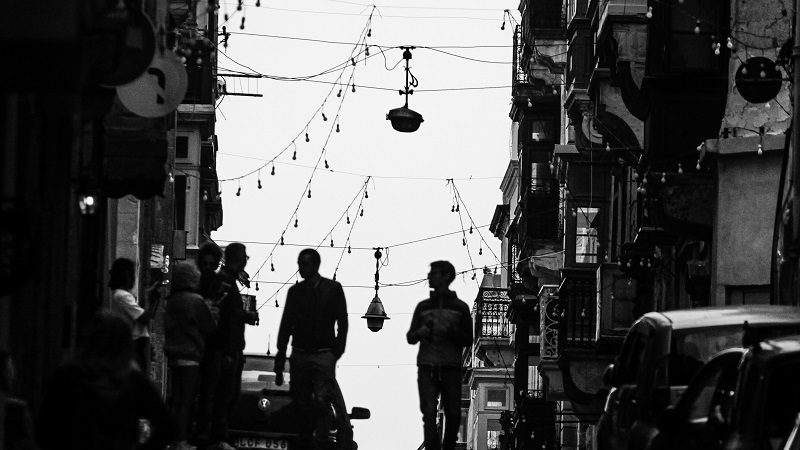“Malta has always been the whore of the Mediterranean,” my friend Victor said, “selling its soul for money no matter where it comes from.”
You can imagine my shock the first time I heard this.
I was reminded of it again today when I read that the European Commission said — in no uncertain terms — it “does not endorse” Malta’s citizenship selling program.
Of course, that’s a direct contradiction of what Joseph Muscat keeps telling audiences during their passport peddling pitch. But the European Commission was clear. They don’t like the fact that Malta is selling EU citizenship. They just couldn’t do anything at the time to stop it.
Was my friend Victor right? Is Malta selling its soul for money?
A very clear pattern has begun to emerge in recent years, and it isn’t very flattering.
It paints a picture of “someone” who applied to join a club, and was admitted by the other members. The club conferred certain benefits, of course. But all members were supposed to be working together toward common goals, united by common values.
Unfortunately, judging by its track record, the new member known as Malta wasn’t entirely aligned with this. Rather, it was stuffing its pockets with anything which wasn’t nailed down.
Joining a club and then unilaterally selling membership in that club to dodgy people out the back door, so that they can go and live in other people’s countries, whether those countries like it or not…
Selling EU visas to Algerians and Libyans who vanish into Continental Europe without a trace…
Predatory tax practices where other member states are fleeced of income, to the benefit of Malta and its letterbox companies…
Lax banking that helps shady outsiders move dirty money into other EU countries, with little to no oversight…
Fuel smuggling from Libya — that’s okay too, as long as Malta gets its cut.
Do supporters of the current Maltese government feel it’s acceptable to be invited to dinner and then steal the silverware?
But this isn’t just one member state cynically taking advantage of other countries. It’s part of a mentality of entitlement which seems to span all levels of Maltese society.
I’m reminded of an article that appeared in The Times of Malta in May 2017. It reported on a European Commission survey which revealed two-thirds of Maltese people fear that Maltese authorities are completely unprepared to deal with a full-scale natural disaster.
Strangely enough, a 2015 Eurobarometer poll also found that 98% of Maltese respondents expected other member states to deploy assets to assist Malta in such a disaster. This was the highest figure in all of Europe.
But the Maltese didn’t just expect the EU to come in and save them. They also said individual neighbouring countries, such as Italy, would assist the island.
Let me translate this for anyone who might be missing the point.
An overwhelming number of respondents in Malta are saying that, rather than spend any money, time or effort preparing to help themselves deal with a natural disaster, they fully expect everyone else to come in and save them.
Why, exactly?
It makes me think of MEP and former Prime Minister Alfred Sant’s objections to any contribution by Malta to a common European defence programme. He claims that participation in such a scheme would transgress Malta’s vaunted policy of “neutrality” (does that mean “selling to both sides”?)
I wonder if Sant expects every other country to rush to Malta’s defence if it is attacked?
I suppose we shouldn’t expect much from a self-professed socialist who justifies Malta’s aggressive tax practices as acceptable for “economies that are on the periphery of Europe”. Weird things happen to logic when attempting to integrate Marxist theory with the real world.
Plucky little Malta. Always undermining everyone else, always taking advantage of “friends”, but never willing to pitch in and help.
It’s like that family member who takes advantage of you over and over again, as though blood ties gave them a licence to use you. After a while, most sane people will just write that person off as hopeless and decide to have nothing more to do with them.
Will this be the fate of Malta in the community of Western nations?
It leads me to ask a very uncomfortable question: “What exactly does Malta contribute to the European Union?”
Cheap all-inclusive vacations?
No, seriously. What does Malta bring to the table for the benefit of the other member states?
Please don’t tell me “€81 million per year.” Malta received €208 million in return. Into one pocket and back out of the other. When it comes to funding, Malta has always been a net beneficiary of the European Union.
This is expected to change in 2020 when Malta’s current entitlement to equalisation funds runs out. Watch for angry voices to flare up suggesting a ‘Maltexit’ as those who feel it’s fine to take for decades and then walk away when it’s time to contribute come out of the walls like wood lice after an earthquake.
But back to that uncomfortable question, because I really am trying to figure it out.
“What exactly does Malta contribute to the European Union?”
We’ve all seen over the past several years what Malta takes away from it.












